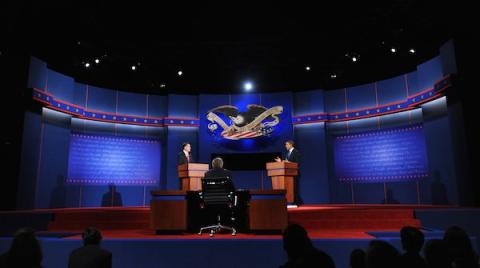Buried in the everyday actions of an active political campaign, I didn’t realize I was part of a trend until I looked again at Alexa Mikalowski’s article. She described women’s groups and their influential websites that ignore independent and third-party female candidates. She called out Rutger’s Center for Women and Politics as a so-called “non-partisan voice.” Graciously, she included me on her list of credible women candidates getting ignored by women’s groups.
Welcome to my world. As the Green Party congressional candidate for District 21, the North Country of New York, the same denial of political reality infects too many mainstream, small town, and alternative broadcast stations as well as individual reporters.
I had been in five congressional candidate forums between April and June 2018, when suddenly I was excluded from a televised debate by Mountain Lake Public Broadcasting Service (PBS) and another publicized debate by the Saratoga County League of Women Voters. That annoyance triggered my last column.
Ignoring us is not just disrespectful. When broadcast media and public broadcasting organizations ignore and silence the voices of independent and 3rd party political candidates, our nation loses the ability to find strategies to solve our shared problems. Many experts in many occupations are running as Greens, Libertarians, and independents, often calling for social justice and attention to health care, our environment, and endless war.
My article tried to articulate the legal challenge to mainstream media or to any organization that excludes independent and third party candidates from broadcast activities:
From Access Denied:
"The legal challenges to broadcast platforms and non-profit organizations that exclude ballot-certified candidates cite violations of the Equal Access sections of The Communication Act of 1934, which established the Federal Communications Commission (FCC) to regulate US broadcast communication. The Act included policies for fair and equal access. Although attempts to develop rules for the Fairness Doctrine were vetoed in 1987 by President Ronald Reagan, the equal access language of Section 315 remains in effect."
Section 315 says that equal opportunities must be made available to all legally qualified candidates for the same political office. These rules were intended to prevent broadcast stations from manipulating elections ... Originally written for radio and television, the equal access language now extends to cable systems and digital technologies.
One rationale from many television stations for excluding 3rd party candidates is that the news event is about the primary, not the election:
The debate we are hosting on June 12th is for the 5 candidates running in the NY 21 Democratic Primary on June 26th. With all due respect, you have already secured your place on the ballot for Election Day in November. These 5 Democrats are still competing for their Party’s nomination, to determine which of the five, like you, will have the opportunity to challenge Congresswoman Stefanik in November.
This rationale for exclusion, that the focus is the Democratic or Republican primary, not the election itself, is absurd. As I noted:
- Dividing all of American politics into two corporate-funded political parties ignores the reality of the independent and 3rd party movement.
- In the instantaneous world of 21st century, multi-platform broadcasting, voters are perfectly capable of handling discussions that include all ballot-qualified candidates from all political parties.
- Independent and 3rd party candidates bring decades of experience in delivering real-world solutions. If only 18% of Americans report that they trust Congress to do the right thing, then conversations between more candidates about all possible solutions could re-engage voters.
I strongly believe only independent and 3rd party candidates can challenge the assumptions underlying political decisions that are destroying America. Candidates and politicians from the two corporate-funded parties cannot break free of party loyalties that represent a very small slice of voters. Only independent and 3rd party candidates are currently talking solutions for poverty, climate change, racism, and endless war.
As candidates, we mouth off to production executives about equal access. We rely on writers like Alexa to identify groups that fail to acknowledge women political candidates outside the two corporate-funded parties. The supposedly non-partisan groups such as No Labels or MoveOn that ignore independent and 3rd party candidates and solutions are equally guilty. I throw shade at the New York Times article about the congressional race in my District that totally ignored both my existence and my ballot-certified congressional campaign. Excluding the views of 3rd party candidates is especially frustrating as a Green seeing Democrats pilfer our Green Energy and Green Jobs Plans and then call us spoilers!
Counteracting all that, a candidate stands alone. My campaign strategy is to focus on big issues and keep releasing strategic plans and architectures that drive solutions to complicated problems. When community support grows, so does media attention, including decisions about interviews and televised debates. For candidates, we stand alone and the best message is about SOLUTIONS.
